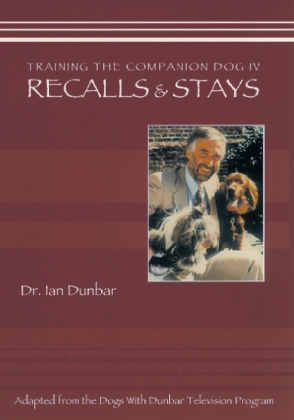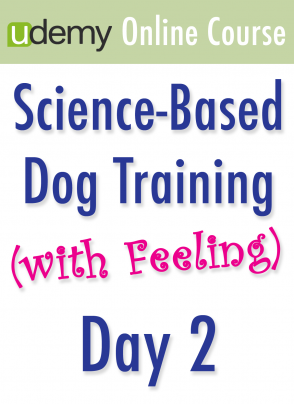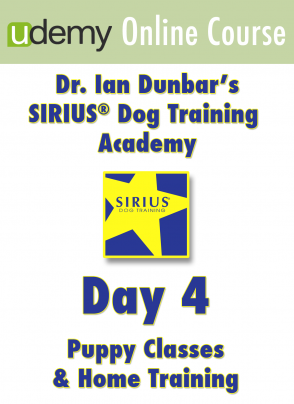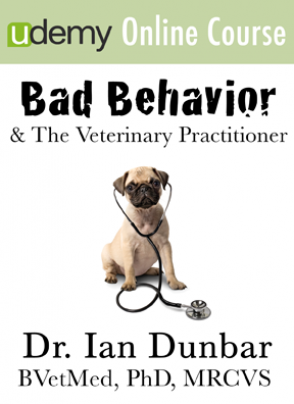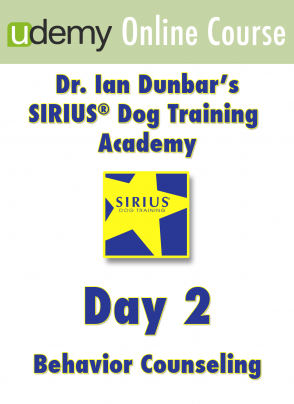Topics include: Recalls from Play. Teaching Off (not to mouth and paw). Teaching & Proofing Stay. Introducing Distance Control.
PET DOG TRAINING NEEDS AN OVERHAUL
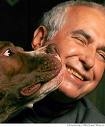
Off-leash puppy socialization and training classes caused an unplanned paradigm shift in dog training. The off-leash format was ideal for socialization with people and puppies and produced confident, friendly, good-natured and well-behaved dogs. Also the off-leash format was ideal for teaching off-leash verbal control at a distance in an extremely distracted setting without the continued need for training aids. The field of science-based, pet dog training exploded and other fields of dog training (obedience, protection, search and rescue, bomb/drug search and hearing-ear dogs) followed suit, because pet dog trainers were training puppies to off-leash control within a tenth of the time that it took on-leash trainers. Basically, teaching a dog what to do is quicker than teaching a dog what not to do, because … there is only one right way compared to the infinite number of wrong ways. Reward-training is simply far more time-efficient and effective than punishment–training. And so, pet dog training became a happy place with an abundance of food and toy lures and rewards producing friendly, confident, well-trained dogs.
However, as pet dog training diverged from competition/working dog training, quantification disappeared, criteria softened, and efficiency and effectiveness of training decreased. Over the past 15 years though, things have begun to drift and pet dog training urgently requires a massive overhaul to put it back on course.
Pet dog training desperately needs a make-over in terms of theory and practice.
In the absence of regular quantification, standards have fallen in terms of performance criteria, time and trials to criterion and off-leash verbal control. Many puppy classes are now taught on-leash and owners are still trying to lure or feed food treats week six. Many temporary training tools have become permanent management tools. We must get back to basics — off-leash classes for socialization with people and dogs and to teach bite inhibition and off-leash verbal control without the continued need for training aids (crutches). We must phase out food lures, rewards, clicks and treats, leashes, collars, halters and harnesses. We must follow the first three stages of lure/reward training:
1. To phase out lures (or physical prompts) within the very first session, 2. To reduce the number of food rewards to enable differential reinforcement and 3. To phase out all training rewards and replace them with infinitely more valuable “life rewards” so that the dog becomes internally motivated and desired behaviors become self-reinforcing and simply do not require external rewards or punishment.
2. Laboratory-generated learning theory needs to be utterly reviewed, reevaluated and re-written for more effective practical application in education and training. Most reinforcement and punishment schedules have severe constraints in dog training, i.e., they simply don’t work. We shouldn’t even try to apply these schedules because we can’t. We do not have the consistency and computing power of laboratory machines. Also, we can do much better using instructive and analogue verbal feedback. After all, we are smarter than computers; we built them. We must move away from non-instructive, sterile quantum feedback before all trainers become technicians and theorists and dog training loses its soul.
To hear more of Dr. Dunbar's views and insights see him live at one of his upcoming seminars.

